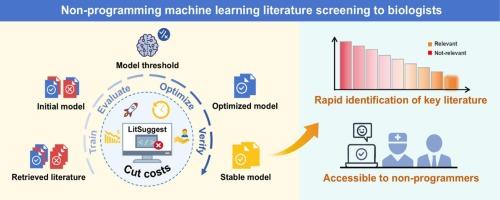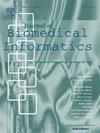An optimized code-free AI approach for efficient and accurate literature screening in bone organoid research
IF 4.5
2区 医学
Q2 COMPUTER SCIENCE, INTERDISCIPLINARY APPLICATIONS
引用次数: 0
Abstract
The exponential growth of biomedical literature has rendered traditional screening methods inefficient and unsustainable, making knowledge discovery akin to finding a needle in a haystack. While recent advances in artificial intelligence (AI) offer new opportunities for rapid literature retrieval, many clinicians and researchers lack familiarity with these tools. In this study, we optimized LitSuggest, a user-friendly, code-free AI-based literature screening system, and established a standardized operational workflow. Using the field of organoid-based bone tissue engineering as a case study, the optimized system achieved an accuracy of 98.83%, precision of 76.19%, recall of 83.33%, and an F1-score of 79.60%, while reducing manual screening workload by over 90%. Furthermore, we innovatively integrated correlation scoring into literature analysis, revealing that China and the United States are leading contributors to bone organoid regeneration research, and that complex and genetic disease organoid models hold significant research potential. This AI-driven approach enables researchers to focus on high-value literature, improving efficiency while guiding future research in bone organoid regeneration and broader biomedical fields.

一种优化的无代码人工智能方法,用于骨类器官研究中高效准确的文献筛选。
生物医学文献的指数级增长使得传统的筛选方法效率低下且不可持续,使得知识发现类似于大海捞针。虽然人工智能(AI)的最新进展为快速检索文献提供了新的机会,但许多临床医生和研究人员对这些工具缺乏熟悉。在本研究中,我们对LitSuggest这一用户友好、无代码的基于人工智能的文献筛选系统进行了优化,建立了标准化的操作流程。以类器官骨组织工程领域为例,优化后的系统准确率为98.83%,精密度为76.19%,召回率为83.33%,f1评分为79.60%,人工筛选工作量减少90%以上。此外,我们创新地将相关评分纳入文献分析,揭示了中国和美国是骨类器官再生研究的主要贡献者,复杂和遗传性疾病类器官模型具有重要的研究潜力。这种人工智能驱动的方法使研究人员能够专注于高价值的文献,提高效率,同时指导未来骨类器官再生和更广泛的生物医学领域的研究。
本文章由计算机程序翻译,如有差异,请以英文原文为准。
求助全文
约1分钟内获得全文
求助全文
来源期刊

Journal of Biomedical Informatics
医学-计算机:跨学科应用
CiteScore
8.90
自引率
6.70%
发文量
243
审稿时长
32 days
期刊介绍:
The Journal of Biomedical Informatics reflects a commitment to high-quality original research papers, reviews, and commentaries in the area of biomedical informatics methodology. Although we publish articles motivated by applications in the biomedical sciences (for example, clinical medicine, health care, population health, and translational bioinformatics), the journal emphasizes reports of new methodologies and techniques that have general applicability and that form the basis for the evolving science of biomedical informatics. Articles on medical devices; evaluations of implemented systems (including clinical trials of information technologies); or papers that provide insight into a biological process, a specific disease, or treatment options would generally be more suitable for publication in other venues. Papers on applications of signal processing and image analysis are often more suitable for biomedical engineering journals or other informatics journals, although we do publish papers that emphasize the information management and knowledge representation/modeling issues that arise in the storage and use of biological signals and images. System descriptions are welcome if they illustrate and substantiate the underlying methodology that is the principal focus of the report and an effort is made to address the generalizability and/or range of application of that methodology. Note also that, given the international nature of JBI, papers that deal with specific languages other than English, or with country-specific health systems or approaches, are acceptable for JBI only if they offer generalizable lessons that are relevant to the broad JBI readership, regardless of their country, language, culture, or health system.
 求助内容:
求助内容: 应助结果提醒方式:
应助结果提醒方式:


